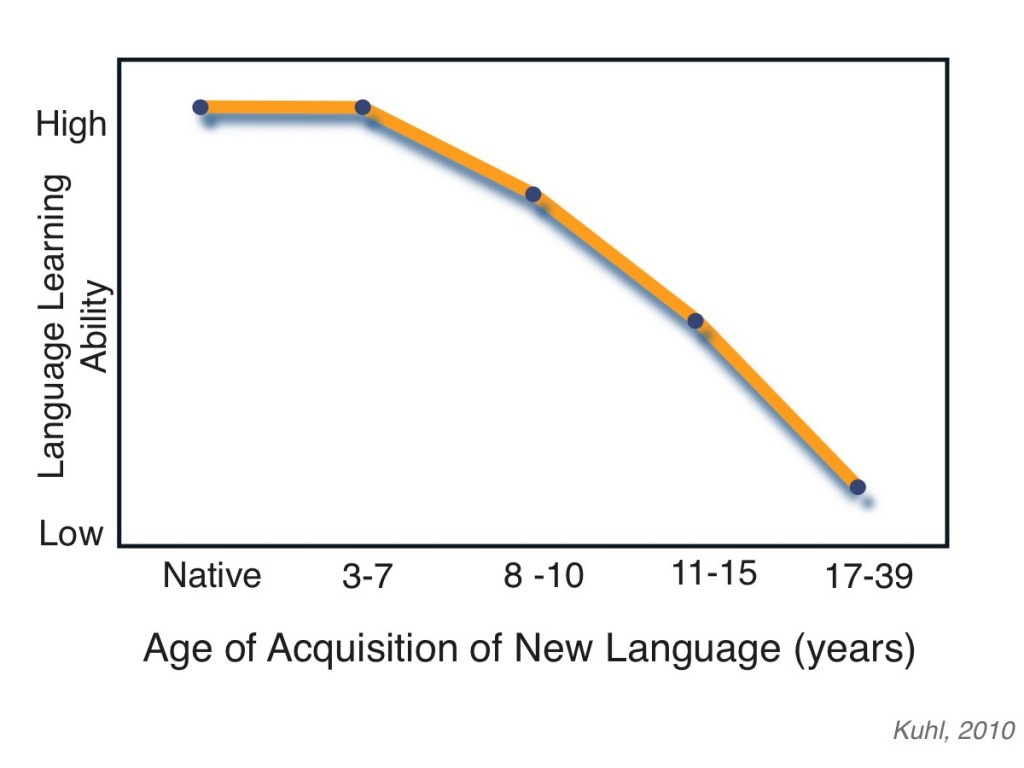
Children are geniuses at learning language. In fact, they are better language learners than adults. Language learning is one skill that has a sensitive period, or a time in development when the brain is particularly primed, or ready, to learn.
Not all aspects of language learning have the same sensitive periods. For example, the best time for recognizing the sounds of our native language (such as, /b/ and /d/) is during the first year of life. The best time for learning words occurs a bit later, in the second year of life. Generally speaking, however, the brain is especially ready to learn language in early childhood.
This graph represents our ability to learn language at different ages. To read the graph, first find your age on the bottom of the graph. Then move your finger straight up until you reach the yellow line above your age. Now look at the language score on the left hand side of the screen. The higher your finger is on the vertical line, the easier it is for you to learn language. The lower the point is on the graph, the harder it is to learn language at that age. As you can see, younger people learn language more easily. But learning a new language is always possible, no matter how old you are. Over time, language learning simply becomes more difficult, requires more effort, and is likely to take longer.
It might be surprising how much more difficult it is to start learning a new language in adulthood. What is perhaps more interesting is just how good children are at acquiring a new language. Language learning results from experience. Children learn the language or languages they hear in their environment, so it is important for them to spend time playing and interacting with other people. These experiences build a healthy brain and prepare it for a lifetime of communication.
-
- Categorization
- grouping together the same sounds, and distinguishing them from other sounds
- Phoneme
- the smallest unit of speech (a sound)
- Sensitive period
- a time in development when the brain is especially ready to learn a skill
- Speech perception
- listening to speech
- Speech production
- speaking
- Statistical learning
- computing how likely it is that certain events (in this case sounds or syllables) occur compared to others